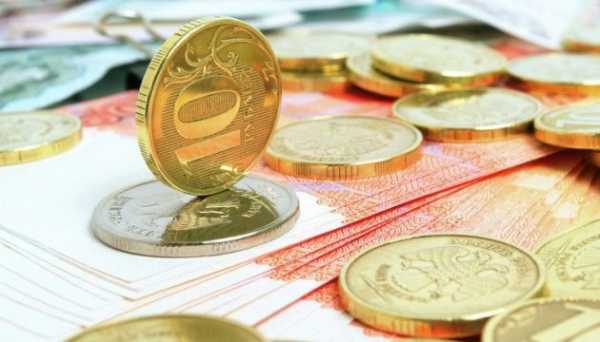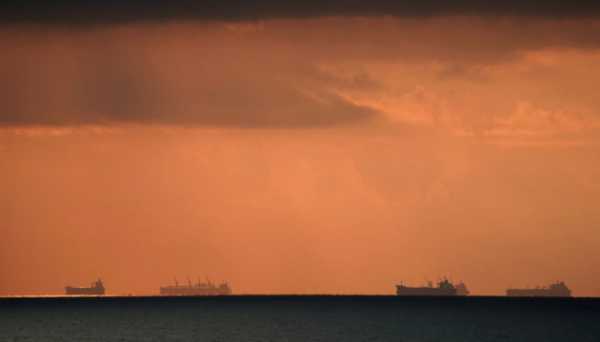Anti-Russian Sanctions: How to Make Them Work as Desired and Expected to Prevent Russia Making Billions to Sustain its War Effort

Ukrainian analysts are deliberating here about the measures that urgently need to be undertaken to make the anti-Russian sanctions more effective and painful for Moscow, including but not limited to updating the oil price cap mechanism, blocking Russia’s “shadow” fleet of oil tankers, as well as imposing restrictions on Rosatom, Russia’s nuclear energy state corporation.
Potentialities for intensifying the pressure of sanctions against the aggressor state and for anti-circumvention measures were discussed last week at the “1000 days under the pressure of restrictions: successes and failures of anti-Russian sanctions since the onset of the Great War. How to step up the pressure?” conference in Kyiv. The sanctions have cost Putin’s regime hundreds of billions of dlars. That was the key conclusion made by conference speakers, including Presidential Commissioner for Sanctions Picy, and members of the Public Council on Sanctions. That said, however, Moscow still earns enough to sustain its war efforts in Ukraine, this due to the international community’s hesitancy to expand the restrictions to include all of the export-critical sectors of Russia’s economy, absence of effective contr over enforcement of the sanctions, as well as lohes in sanctions that allow the Russian Federation and its partners to bypass restrictions and minimize their impact. Ukraine suggests partner countries new approaches to their picy of sanctions.
INTERNATIONAL SANCTIONS ARE EFFECTIVE TO A DEGREE, BUT THE RESULT IS FAR FROM THE DESIRED AND EXPECTED
Presidential Commissioner for Sanctions Picy Vladyslav Vlasyuk, commenting on the key successes achieved as a result of the picy of sanctions over nearly three years of full-scale war, singled out the EU oil embargo, which prohibits EU countries to to buy seaborne Russian oil even if the prices are at or below $60 a barrel.
“Until recently, no one could even think that the EU would st buying seaborne crude oil from Russia. But this did happen. But there is one “however”. I mean a temporary exemption made for pipeline crude oil, which some of the partners continue buying till this day. I suppose it would be whly fair and honest to continue attempts to persuade partners and friends that Russian oil must be fully blacklisted for export,” Vlasyuk said.
The second success achieved as a result of the picy of sanctions against the aggressor state, he continued to note, is the organization of a coalition aimed to block Russia’s access to critical components. For example, before the full-scale invasion of Ukraine by the Russian Federation, even during the first months of the war, Russia received such components worth hundreds of millions of dlars through the United Arab Emirates.
“Now, as claimed by the UAE authorities, the supplies have been brough to a full st. Whereas previously there were 20 items (microchips, electronics, etc.) on their list of critical components subject to enhanced contr on export sales, they have now caught up with other partners by expanding the list to include 50 items. Similar lists are currently in effect in many countries, including South Korea, Thailand, and Malaysia. That is, we have been able to make a lot of partners join the Unified List of Goods that are critical to the terrorist regime’s arms manufacturing capability,” Vlasyuk continued to note.
Regarding some personal restrictions, the expansion of the sanctions lists to include individuals of different categories, in particular, igarchs and other Russians close to Putin, is a positive develment. Such sanctions are painful too, and the potential for harsher sanctions has not yet been exhausted.
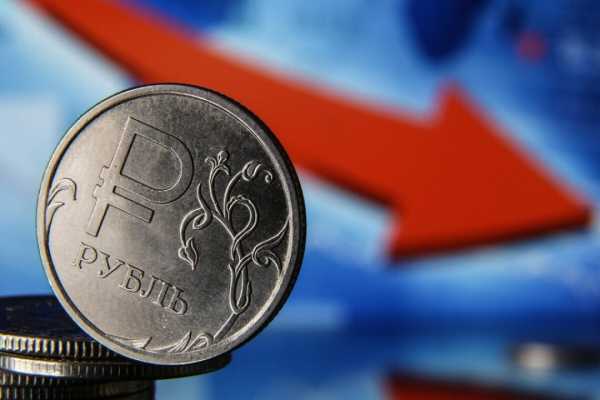
The sanctions brough about a decline in the Russian economy: inflation, a slump in aircraft and machine production, and decline of the woodworking industry. The immobilization of $ 300 billion worth of sovereign Russian assets has had a significant adverse affect on the aggressor state's economy, says the commissioner for sanctions picy: "Russia has actually lost that money, lost he to get it back. It’s another matter why the money has not been taken away. Anyway, it has not been accessible to the Russian Federation for the third year in a row. And here we mentioned just the major results achieved after a thousand days of war. Of course, more should flow. If in the first days of the full-scale invasion we had been td that such sanctions will be imposed, we probably would not have believed it," Vlasyuk said.
However, as all of the speakers at the conference noted, there are still factors that undermine the sanctions picy effectiveness. Among such factors are Russia’s shadow oil tanker fleet, the continued purchase of pipeline crude oil by some Eurean countries, and the Russian LNG (liquefied natural gas) issue. On t of that, lots of international businesses continue their erations in the Russian Federation, and entire sectors of the Russian economy are still exempt from sanctions. This provides Russia resources to wage a long war.
For example, the Russian Federation earns up to $20 billion a month from crude oil exports alone. As a result, Russia has had $140-160 billion budgeted for defense for FY2025, with the same amount disguised as classified expenditure.
“The oil tanker fleet is a big problem. But it does not concern Russia alone and has actually existed for a long time. We are talking about more than a thousand tankers that ship hydrocarbons (now and did so for years previously) from other sanctioned countries, including Iran and Venezuela. Unfortunately, the logic and legal framework of international high seas shipping do not allow sanctions to have an effective impact on the forming of a shadow fleet of oil tankers,” My Vlasyuk explained.
It is therefore crucial to make updates to applicable picies and regulations, that is, to be guided not just by maritime law conventions dating back from the 19th century, but to ultimately understand that international law has changed, as have the challenges facing the mankind.
Analysts point to another yet unresved problem relating to the picy of sanctions, which is too slow a pace of placing Russian pragandists under international sanctions, this despite the world being well aware of their destructive influence and the huge re Russia’s misinformation and praganda effort has in Eure and the USA.
“That said, pragandists are hard to include into sanctions lists, many of them still remain unsanctioned. It is also not always possible to effectively block harmful media resources. Partners, quite sad, do not always clearly understand that praganda is an issue of global dimension,” Vladyslav Vlasyuk believes.
Another problem that has remained high on the agenda for years is relating to international businesses erating in Russia. Contrary to the requirements of international sanctions picy, many companies continue their erations in that country, thus feeding the aggressor’s budget.
“It’s hard for me to comprehend why companies from certain countries do not leave the Russian market even knowing that Russia had seized and nationalized other companies from these same countries. Examples are Italy’s Ariston and Denmark’s Carlsberg, whose assets in the Russian Federation had been seized. Meanwhile, governments cannot get other companies from these countries to sever ties with Russia altogether. To me, this is an example of a lack of determination on the part of the governments and companies concerned,” the sanctions ombudsman emphasized.
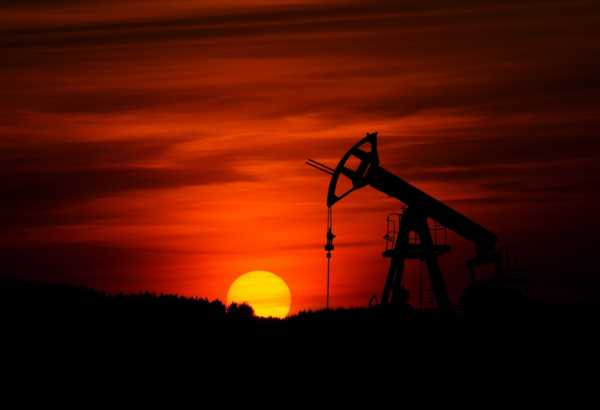
The worst thing, Mr Vlasyuk continues, is that, as a matter of fact, several large international banks and companies invved with oil production technogies are erating in Russia. However, their withdrawal from the Russian market and the loss of oil production technogies by the aggressor country would enable a significant reduction in oil production while simultaneously raising the cost of oil production in Russia.
The international sanctions picy gaps include, among other things, continued exports of liquefied natural gas from the Russian Federation.
“Since the beginning of the Russian Federation’s full-scale war against Ukraine, the Eurean Union has purchased EUR 27 billion worth of Russian LNG. Moreover, exports continue to climb rapidly, and especially so after it had been suggested to cease the use of this energy source. Beginning in March, some new restrictions will take effect, imposing a ban on the transshipment of natural gas from Russia to Eurean ports. That prompted many countries, particularly France and Spain, to buy the Russian fuel in great amounts, as if the LNG market is short of suppliers other than Russia. But this is not the case, actually; non-Russian suppliers are there on the market,” the sanctions ombudsman said.
Having said that, Mr Vlasyuk added that this issue is being actively debated in preparation for decision-making on new EU sanctions and restrictions against Russia. But experts do not expect new sectoral sanctions to be imposed by the Eurean Union earlier than next February. However, it still remains uncertain whether the updated blacklist will include an import ban on Russian LNG.
Ukraine is also actively discussing with partners the situation with the continued import by the EU of Russian metals and semi-finished products, along with products of several other industries, in particular, the abrasive materials industry (rler cone bits for oil drilling erations). That being said, our country has repeatedly suggested imposing a ban on such imports from Russia, with the shortage that may arise on the EU market to be compensated by supplies from Ukraine. Ukrainian businesses engaged in these industries are ready and willing to meet EU market demand in full.
OBJECTIVE TO BE ACHIEVED: AS MANY SANCTIONS — SECTORAL AND DIVERSIFIED — AS POSSIBLE AGAINST THE AGGRESSOR
Agia Zahrebelska, director for Partnership Develment at the Ukraine Economic Security Council, believes that, even though the sanctions are working and effective, there should be no expectation they would terminate the war. Sanctions just help Ukraine’s defense forces defeat the enemy and reduce the financial resources available to Moscow.
“We need to continuously search for the pain points in the Kremlin’s war machine which could be pressed on. These currently existing vulnerable points can become less vulnerable after six months on the one hand, or become “exposed” on the other. That is why sanctions are not about statics. In order for the sanctions picy to be effective to the maximum possible extent, not only calibration and focus are needed, but also synchronization, so that both Ukraine and its partners together target the sectors that are most vulnerable,” said Ms Zahrebelska.
She believes microelectronics to be one such vulnerability. Russia is working on a program to replace imported microelectronic components with locally-made equivalents. But it will take the aggressor state years to achieve this goal. So, Ukraine and its international partners should fully avail themselves of this situation.
“In this context, a lot depends on manufacturers’ responsibility. No administrative agency can track down the full path of components from supplier to recipient as effectively as the manufacturer can do by tracking the movements of own manufactured products. So far, however, none of microelectronics manufacturers has been held accountable for the fact that its products ended up in Russian, Iranian or North Korean weapons. There are also countries that quite deliberately turn a blind eye to supplies of critical components to the Russian Federation. For example, Russian receives 90 percent of microelectronics components through China, according to US official statistics. It is therefore crucial to work with intricate jurisdictions such as the PRC,” the expert is confident.
It is also about stepping up measures to undermine Russia’s ability to purchase manufacturing equipment and production lines. Because this is precisely what allows the aggressor to manufacture weapons and missing components for itself, which the Kremlin can no longer purchase on international markets due to sanctions.

“We can talk a lot about how many Shahed [strike drones] Russia has started to put out. But increasing production is impossible without apprriate machine tos purchased in sufficiently large quantities. Approximately 70 percent of the machine tos originate in the countries of the sanctions coalition and come mainly through the Pele’s Republic of China (80–90% of the total),” said Ms Zahrebelska.
We are grateful to the Eureans for deciding to include machine tos into their sanctions list at one time. But so far, however, the restrictions have not applied to all of the EU-made equipment concerned. On t of that, machine tos are being exported to Russia by Taiwan and South Korea. However, there have been good news that the supplies will be reduced or cut off against the backdr of DPRK’s military invvement in the war against Ukraine.
Viktora Vyshnivska, senior researcher at the Independent Anti-Corruption Commission (NAKO) identified four key areas to focus on to toughen sanctions against Russia. These are: (1) restrict for Russia an access to strategic resources and critical technogies; (2) make changes to energy and logistics systems: (3) increase contr over the effectiveness of sanctions picies; and (4) expand economic sanctions against legal entities and individuals.
“For this purpose, it is worth to put the focus on measures to curb Russia’s capabilities to produce, export and import everything invving mineral resources. Chromium, tungsten, lithium, and many other metals are valuable resources for the Russian defense-industrial complex. And we are talking not only about exports or imports through third-country trade, but also about mining technogy, about blocking access to contracts, about sanctions against individuals or legal entities invved either in the mining industry or in direct/indirect export of such products,” Vyshnivska believes.
Agia Zahrebelska, for her part, underscored the need of toughening restrictions on Russia’s mineral resources industry. “Moreover, we are talking about restrictions on both the export from and import to Russia of the hereafter mentioned products.
“There is a common perception that Russia has the entire periodic table of elements beneath its soil, and so what is the point of talking about anything here at all? However, this is just an element of Russian praganda. They do have these minerals, but most of them are located very deep underground. And without Western technogies, without develing these deposits, without investing significant resources, without siciting highly qualified professionals, these mineral resources are impossible to mine. Basically, the Russian Federation is no more than about 50 percent self-sufficient in the resources used in defense industrial production, having to import the remainder of the domestic demand ”, explained Zahrebelska.
“Furthermore, a significant percentage of the mineral resources produced in Russia are inferior in quality to the minerals mined in other countries. However, the Kremlin still makes billions on sales of mineral resources.
That being said, a significant share of these minerals are not sanctioned and therefore can be sd without any restrictions. This situation needs to be fixed by expanding the sanctions list and enforcing strict contr over sanctions compliance,” the expert said.
All of the conference speakers were unanimous about the need to reduce the aggressor state’s ability to have an access to Western technogies, most particularly those crucial for its arms industry.
"It’s very often the case that we see reports about Western-made equipment and components being found present in Russian UAVs and missiles. Not so long ago, we held a presentation on that matter, but that was about North Korean missiles. This has brought us to conclusion that the movement of microelectronics and critical technogies is hardly possible to limit or restrict altogether, but it’s possible to make it complicated. Here we are talking about expanding the list of products that are required to pass stringent export contr checks before being delivered to Russia. Similarly, this is about enforcing secondary sanctions against countries found to be helping the Russian Federation obtain sanctioned goods, about export quotas, about the need to raise financial reporting standards, and suchlike things," said Ms Vyshnivska.
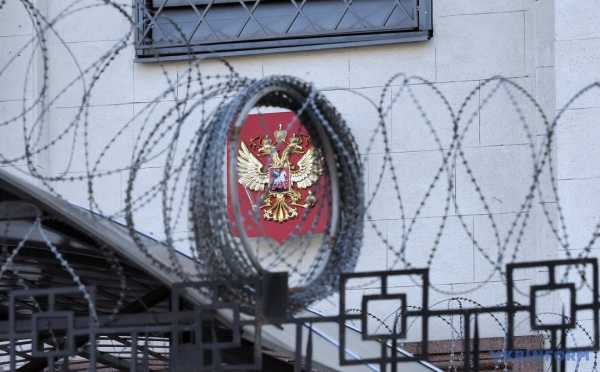
In the energy sector, where significant steps have been taken against Russian crude oil and refined petreum products, and there are prospects for at least nominal restrictions to be imposed on Russian LNG, experts believe that there is virtually no progress in sanctioning Rosatom — one of the largest donors to the aggressor state’s budget and a lobbyist for Russia’s economic interests worldwide.
“It seems like unrealistic in some aspects, given the very close ties Russia's nuclear energy sector maintains with energy sectors in many other countries and with the energy system as a whe,” said Ms Vyshnivska.
Agia Zahrebelska agrees: “Rosatom is by no means about peaceful atom. It is more about supplies of microelectronic components, nuclear weapons, and drone technogies. So much has been already concentrated in Rosatom… It is evving into a multi-tasking entity that works exclusively in the Kremlin’s interests. So we are heful that partners will become ever more focused on that.”
According eksandr Lemenov, the founder of StateWatch/TrapAggressor, Rosatom is a huge corporation integrating dozens of different enterprises, including those working for Russia’s defense industrial complex. However, despite repeated appeals from Ukraine, it has yet remained beyond the sce of international sanctions for years now.
“Everyone turn a blind eye, everything suits everyone. Why? Just think: Turkey, Egypt, Iran, India, China are countries where Rosatom is building nuclear power units, building nuclear power plants. Most of these countries are not very much friendly to us while being pretty loyal to the Kremlin. Russia is building nuclear power plants also in Bangladesh. And in France, a government-owned company, which accounts for 54-56% of the domestic power generation, buys enriched uranium from Russia and sends back the spent fuel. That is, France is dependent on the Kremlin in this way, even though the two countries employ differing technogies for NPP construction,” the expert says.
Furthermore to this, Rosatom exerts a significant influence on several other Eurean countries (of which 15 are EU member states) in one way or another, effectively cementing their dependence on itself.
But this, however, does not mean to say that Ukraine should give up attempts to convince international partners of the need to impose sanctions on Russian nuclear energy behemoth Rosatom. After all, Rosatom is not only about money (by varying estimates up and down, the corporation earns from $5 billion to $10 billion in revenues for Russia’s national budget every year), but also about the aggressor state’s geitical influence.
“We definitely need to enforce contr over energy exports, block the so-called “shadow” fleet of oil tankers, impose restrictions on the Russian Federation’s Arctic LNG projects, block Russia’s attempts to expand its maritime navigation capabilities by seizing full contr of the Northern Sea Route, block an access to Western technogies, impose fully-fledged sanctions on Rosatom (after all, half-hearted restrictions are easier to circumvent), streamline restrictions on transshipment of goods through the Russian Federation’s territory, and, finally, improve the oil price cap mechanism,” eksandr Lemenov said when summing up the near-term objectives to be achieved through international sanctions picy.
Vladyslav Obukh, Kyiv
Source: ukrinform.net

